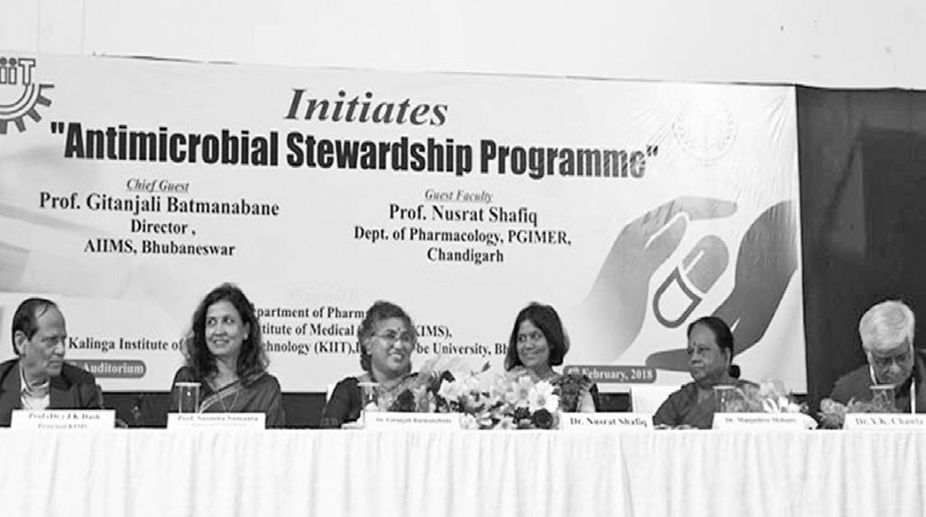Rampant use of antibiotics, available easily across the counters in our country, is leading to increasing incidence of antimicrobial resistant organism. With novel drug development not keeping pace, infection control falls short and transmission of antimicrobial resistant (AMR) organisms between patients occurs.
Those who develop these infections experience the consequences of ineffective treatment, delayed recovery, recurrent infection, or even death. These aspects were deliberated at a Antimicrobial Stewardship Programme organised by Kalinga Institute of Medical Sciences (KIMS) here.
The programme was spearheaded by Prof. Nusrat Shafiq, Professor, Department of Pharmacology, PGIMER, Chandigarh. Solutions debated included eliminating antibiotic from livestock feed and decreasing use of antibiotics for human infections that are self-limited or likely to have been caused by viruses. Improved adherence to infection control guidelines has become a national priority for preventing health care acquired infection and AMR.
As more reports of AMR emerge, there may be a paradoxical effect, causing providers to go to newer broad spectrum agents to which resistance may be less common. There are times and cost constraints for obtaining cultures to guide treatment decisions and empirical therapy are perceived to be more cost effective in ambulatory settings.
Moreover, most antimicrobial prescriptions are written by clinicians who are not infectious disease specialists. The Programme proceedings were attended by Prof. Gilltanjali Batmanabane, Director, AIIMS, Bhubaneswar who is a Pharmacologist and was actively involved at JIPMER in their antibiotic stewardship programme.
Prof. Sasmita Samanta, Registrar, KIlT University, Prof. J. K. Dash, Principal, KIMS and Dr. Manjushree Mohanty, Head, Dept. of Pharmacology also attended the Program. It was decided to initiate the programme in the Intensive Care Unit (ICU) initially at KIMS.












